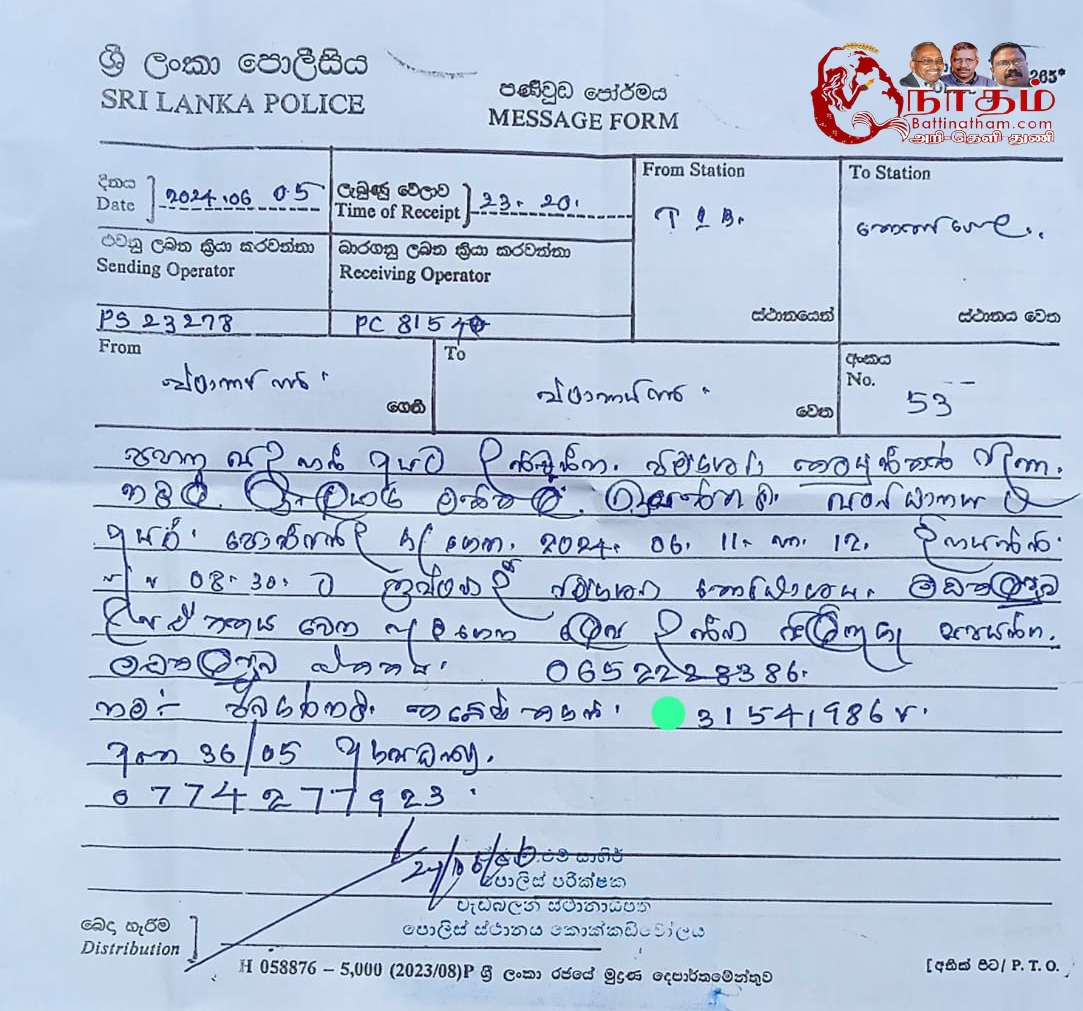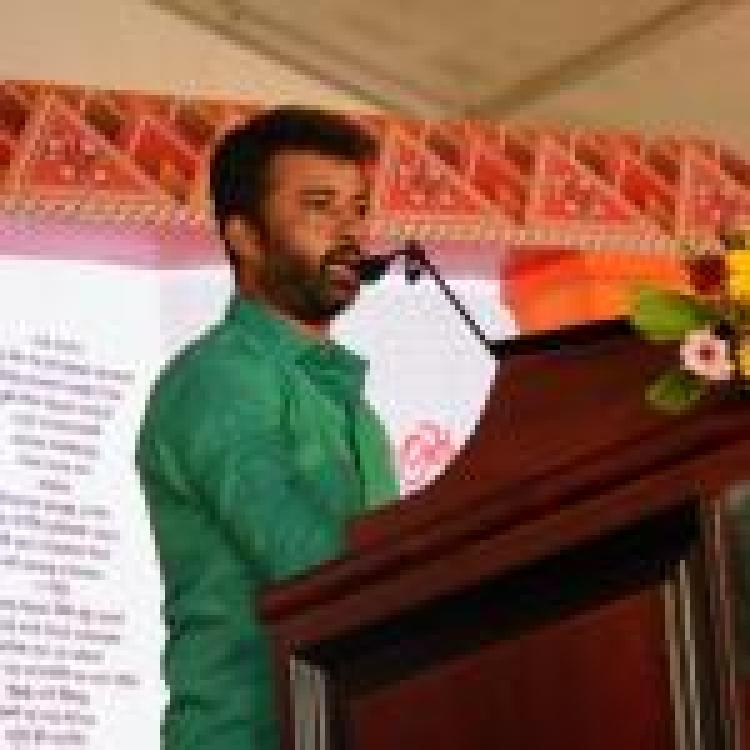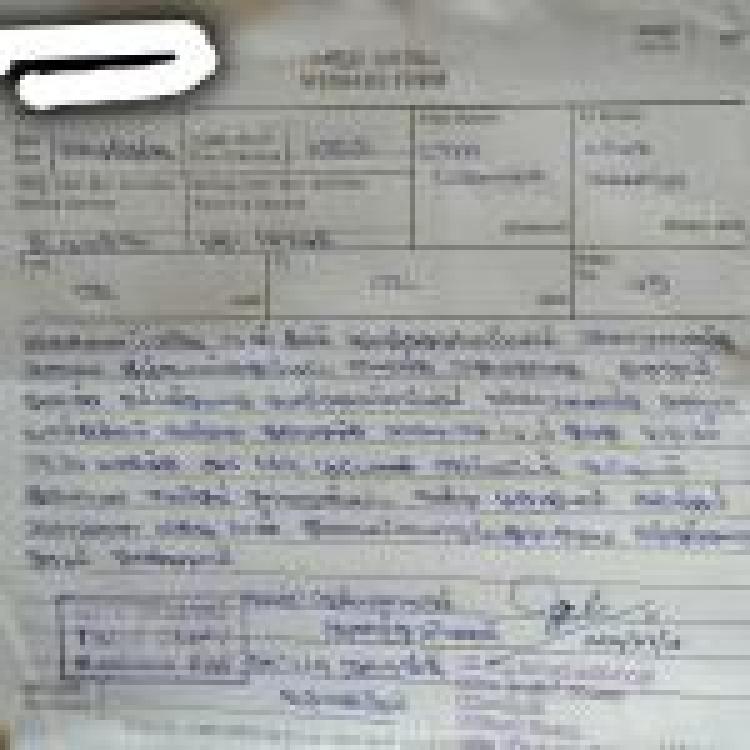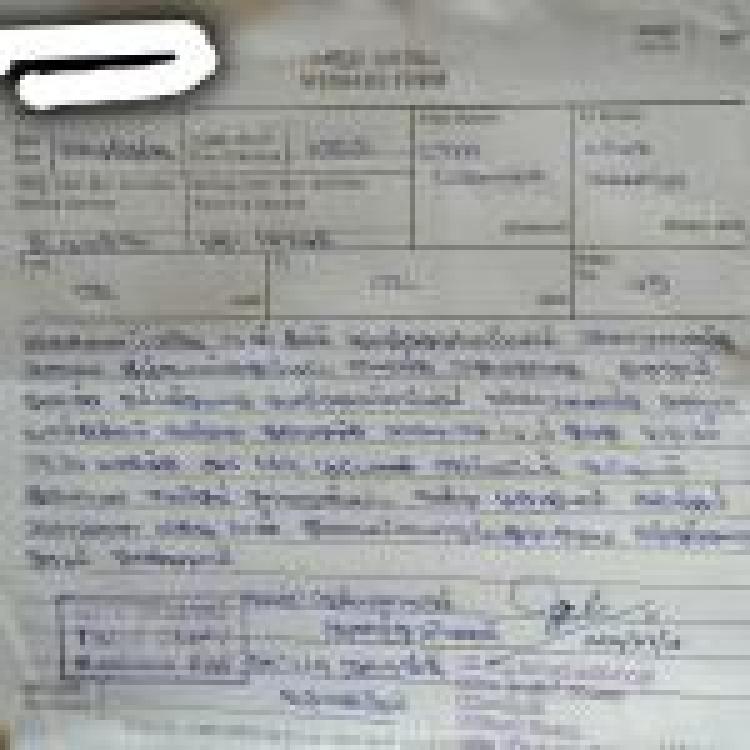
Sri Lanka’s Terrorism Investigation Division has summoned at least seven Tamil political activists in the North-East for questioning in the last three months, as the state’s intimidation of activists and rights defenders continues.
This week alone, the former chairman of the Batticaloa district youth wing of Ilankai Tamil Arasu Katchi (ITAK), Lohitharaja Deepakaran, and the coordinator of the Tamil Youth People's Movement, Jeevarathinam Thaveswaran, had been instructed to appear at the police office in Batticaloa on June 11 and 12, respectively.
This move was criticised by Tamil parliamentarians, including ITAK leader Sivagnanam Shritharan, where he tabled a letter addressed to Sri Lanka’s President Ranil Wickremesinghe during a recent parliamentary session.
The letter, dated June 4, warns of a systematic plan to disrupt the daily lives of Tamils through targeted investigations and intimidations by the security forces, particularly focusing on political leaders in the Tamil homeland.
In his letter, the parliamentarian provided details of seven such Tamil individuals who have been summoned by the TID within the past three months. Shritharan called for an end to the ongoing police harassment against Tamil political activists.
The latest summons issued to Thaveswaran came from the acting Officer-in-Charge (OIC) of the Kokkadicholai Police Station. The notice directed him to appear at the TID's Batticaloa Sub-Division and to bring documents related to the Tamil Youth People's Movement for "investigative purposes".
Thaveswaran believes this action is politically motivated, especially in light of his movement's support for a Tamil public candidate in the upcoming Sri Lankan presidential election. The activist took to Facebook to condemn what he perceives as a violation of rights and threatening activities.
Similarly, on June 6, Deepakaran received a police notice form instructed to appear at the Batticaloa Sub-Division office on June 11.
The intimidation of Tamil political activists has become routine across the North-East, where the Sri Lankan security forces maintains a massive military and police presence.




